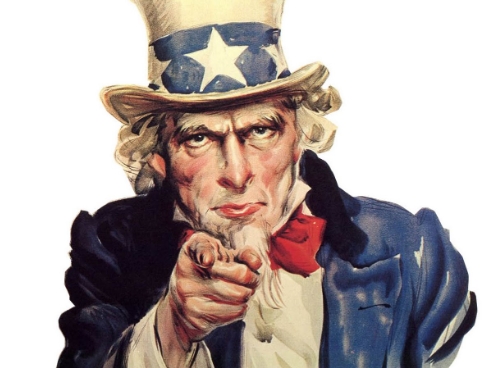Among the many representative national images, “Uncle Sam” is an impressive presence. He is not a president or a soldier, but he has long been the spokesperson for the United States and has appeared at every important node in history.
So why do we still need Uncle Sam today?
The symbol of a country is not just a memory of the past
Uncle Sam first became popular in the 19th century. The most famous image comes from the 1917 recruitment poster – a white-haired old man wearing a uniform with the colors of the Stars and Stripes, pointing his finger forward and saying seriously: “I Want YOU for U.S. Army”. This gesture has been constantly cited by later generations and has become a totem representing national responsibility, appeal and cohesion.
And today, we still “need him” – not for war, but to find a concrete sense of identity in urban space and public environment.
Why bring Uncle Sam into the outdoor space?
In the garden landscape or urban public space, a familiar but meaningful statue can not only beautify the environment, but also inspire people to resonate with national culture. A fully shaped Uncle Sam Statue is not only recognizable, but also creates a strong sense of interaction due to its posture – pointing forward.
Whether in the municipal square, park entrance, exhibition area, or cultural theme garden, it can serve as a “visual anchor point”.
Inspiration from a sculpture
Sculpture is not a static art, it interacts with the surrounding space and the emotions of the viewer. The image of Uncle Sam is both serious and a little dramatic, making people stop and think: “What role do I play on this land?” This “seemingly private, but actually public” emotional connection is irreplaceable by other abstract art.
When people see this statue in natural gardens or urban spaces, they may smile knowingly, or they may feel a slight sense of responsibility in their hearts.
Today, when public art is increasingly receiving attention, an Uncle Sam Statue with exquisite shape and profound meaning may be the spatial language we need.
